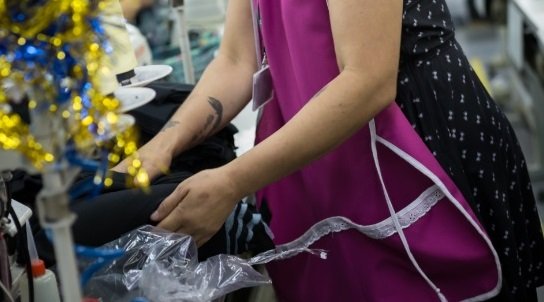
Circular seminar from Econyl
New call for proposals to investigate the financial, health or social impacts of circular fashion business models on women and vulnerable groups.

28th June 2019
Knitting Industry
|
Zug
 C&A Foundation has announced a request for proposals (RFP) for prototype initiatives or research programmes to understand how to enable positive outcomes for workers, employees, customers and the broader society in the transition to an inclusive and fair circular apparel industry.
C&A Foundation has announced a request for proposals (RFP) for prototype initiatives or research programmes to understand how to enable positive outcomes for workers, employees, customers and the broader society in the transition to an inclusive and fair circular apparel industry.
Adopting circular business models principles can potentially reduce the use of raw materials and could generate a net economic benefit for the European Union of EUR 1.8 trillion by 2030. In the fashion industry, different circular business models – including rental, reuse, re-commerce, repair, fashion as a service and closed-loop production systems – are already being implemented and tested by different apparel brands and retailers. Still, it is yet unclear how the transition to circular business models will affect apparel workers and their communities, especially the most vulnerable ones.
The RFP falls under the Circular Fashion programme and is intended to create evidence on how new circular business models operate at scale, and how the transition towards circularity can help to:
“We have seen cases where new business models – the gig economy, for example – have perpetuated inequality and poor working conditions for the greater economic gain of a few. There is an opportunity to design and operate a new economic system that addresses this culture of uneven power dynamics,” explained Douwe Jan Joustra, Head of Circular Transformation at C&A Foundation. “This request for proposals aims to compile concrete evidence about how best to build an inclusive circular business model within the apparel sector.”
Proposals for either research or implementation initiatives can fit into two categories of grant size – up to EUR 100,000 and between EUR 100,000 to EUR 500,000 – and must be applied to at least one of C&A Foundation’s focus countries, including Bangladesh, Brazil, Cambodia China, India, Indonesia, Mexico and Sri Lanka.
The deadline for submission of concept notes is 30 July 2019. Shortlisted applicants will then be invited to submit a full proposal by 30 September 2019. Applicants for grants of up to EUR 100,000 will be informed of a decision by 15 December 2019, and applicants for grants between EUR 100,000 and EUR 500,000 will be informed of a decision by 30 May 2020.

Business intelligence for the fibre, textiles and apparel industries: technologies, innovations, markets, investments, trade policy, sourcing, strategy...
Find out more